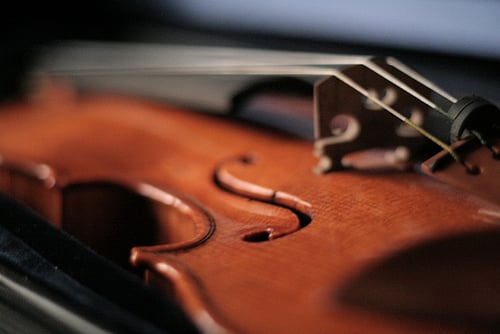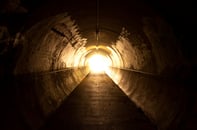Published on
Time To Think: Activating The Artist’s Reflective Process In The Classroom

Consider all the choices you’ve made today.
Go ahead, take your time…
What choice first jumped to mind? Was it a major decision that needed to be made for work? Perhaps a simple daily judgment about what to eat or wear?
Now consider all the factors that influenced your decision. Your mood? Outside demands? How confident were you about your choice? Was knowledge or intuition more important in your decision-making process? What constraints or limitations affected your choice? What does your choice say about your values or priorities?
Whether we’re aware of it or not, these ongoing considerations form a river on which we sail the boats of our lives each day. Our capabilities as decision-makers shape every nuance of our experience from the smallest details to the most monumental events. In the workplace, high value is placed on the employee with the greatest ability to take a wide variety of factors into account and make well judged decisions. Bloom’s Taxonomy ranks evaluating, judging and concluding as the highest-order thinking skills. Yet, in the mad dash to prepare students for standardized tests, very little time is allotted to developing the reflective skills in students that produce effective decision-makers.
As a Teaching Artist, my job is to merge the practices of the creative professional with those of the educational professional. One of the key components I strive to bring to the classroom is the artist’s process of reflection. Successful artists embrace the process of evaluating and re-evaluating their technique and their relationship to their art over a long span of time. When actors embark on a play production, for instance, they approach the rehearsal process with a series of wonderings intended to seek out the layers of importance within the story. They become scientists, experimenting with various combinations of physical, verbal and emotional elements, then make decisions about what produces the most inspiring formulas. As each audience brings its own chemistry to the performance, the performers must continue to respond, reshape and reflect upon the new insights that continue to emerge. Furthermore, if an actress plays the same role several years later, her life experiences and interactions with new cast members will cause her rethink her choices and discover fresh meaning.
The artist’s habits of thought serve as a valuable model for promoting the reflective skills that bridge the span between student and citizen. Whereas timed tests suggest that learning ends when the bell rings, reflective practice promotes the ongoing process of exploration over a long span of time. Rather than confining students to the false notion that every question has a straightforward multiple-choice answer, reflective practice empowers young people to wonder about multiple possibilities and discover relevance. Reflection is an active process that values not just what we learn, but how we learn, why it’s important and how learning impacts the choices we make.
Strengthening reflective skills requires schools to allow – better yet, encourage – teachers to take time during each class to actively look back on the learning process. Educators must have the freedom to explore connections to each student’s personal experiences, without feeling as though it would be viewed as a “waste of time.” Students should be given permission to wonder how today’s learning connects to their past and future experiences. Furthermore, higher value must be placed on each student’s ability to articulate his own developmental journey. Consider these questions, for instance:
- What are you expecting to discover about the Civil War?
- Why do we read Shakespeare? Are the reasons important?
- What tactics have I learned this year to improve as a creative writer?
- How do my own life experiences offer unique insight on the subject of immigration?
- What were the most important choices I had to make to complete this project?
- What about physics makes me wonder?
After all, if students can’t answer these questions effectively, then what does that say about the choices we’ve made as educators? Reflect on that for a while.
Go ahead, take your time…



